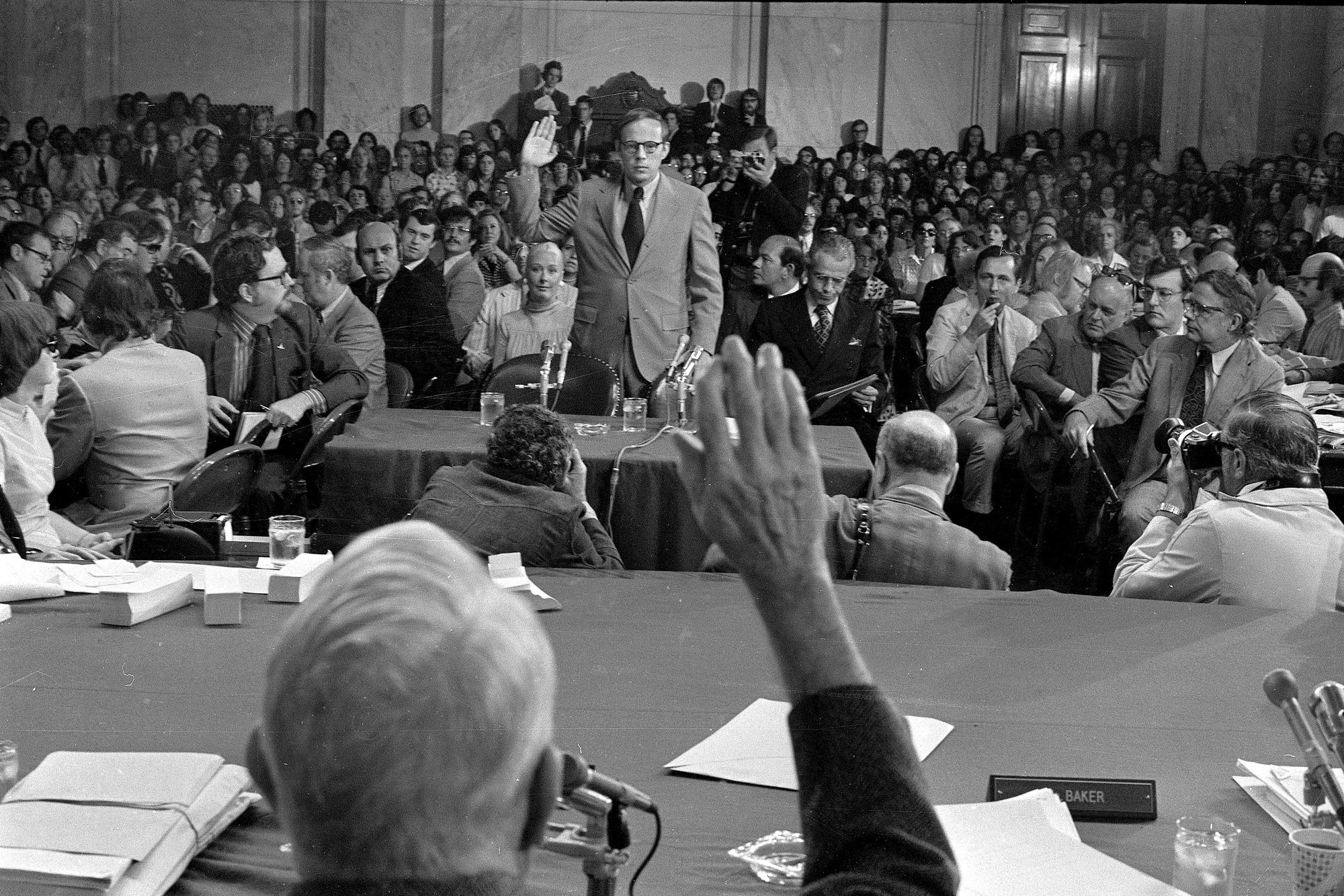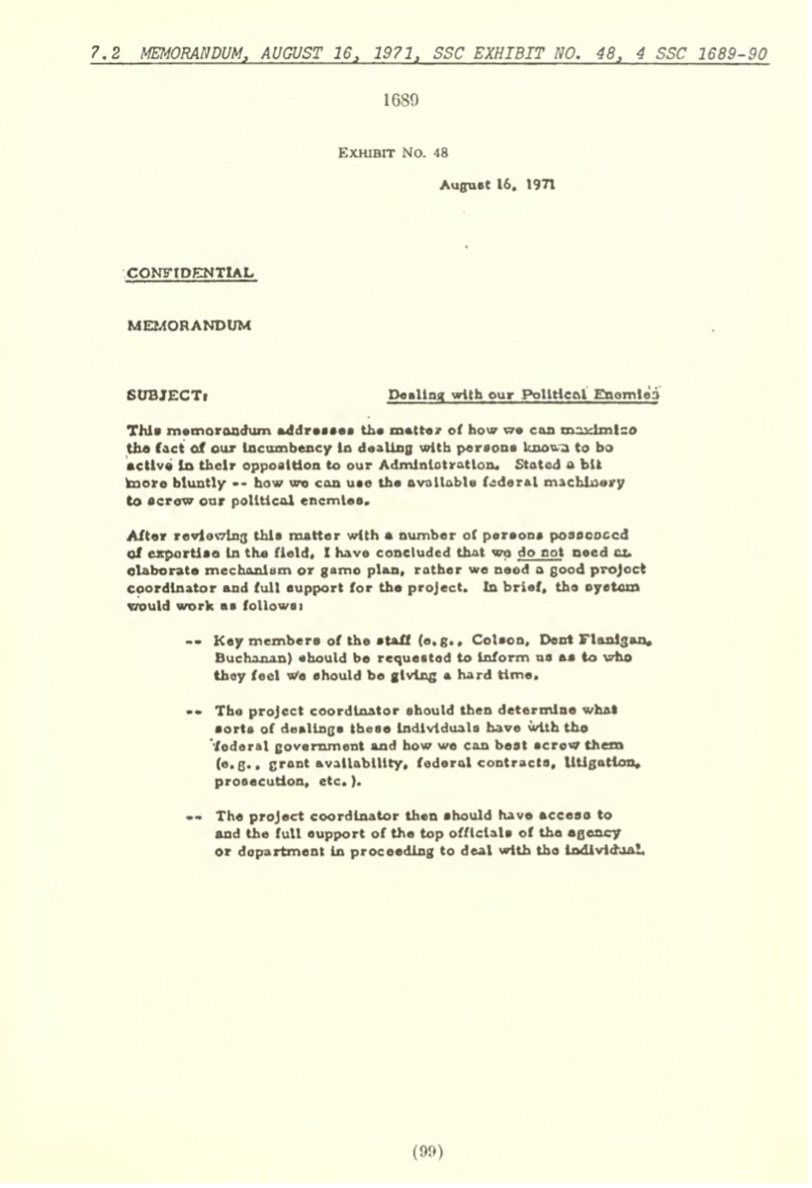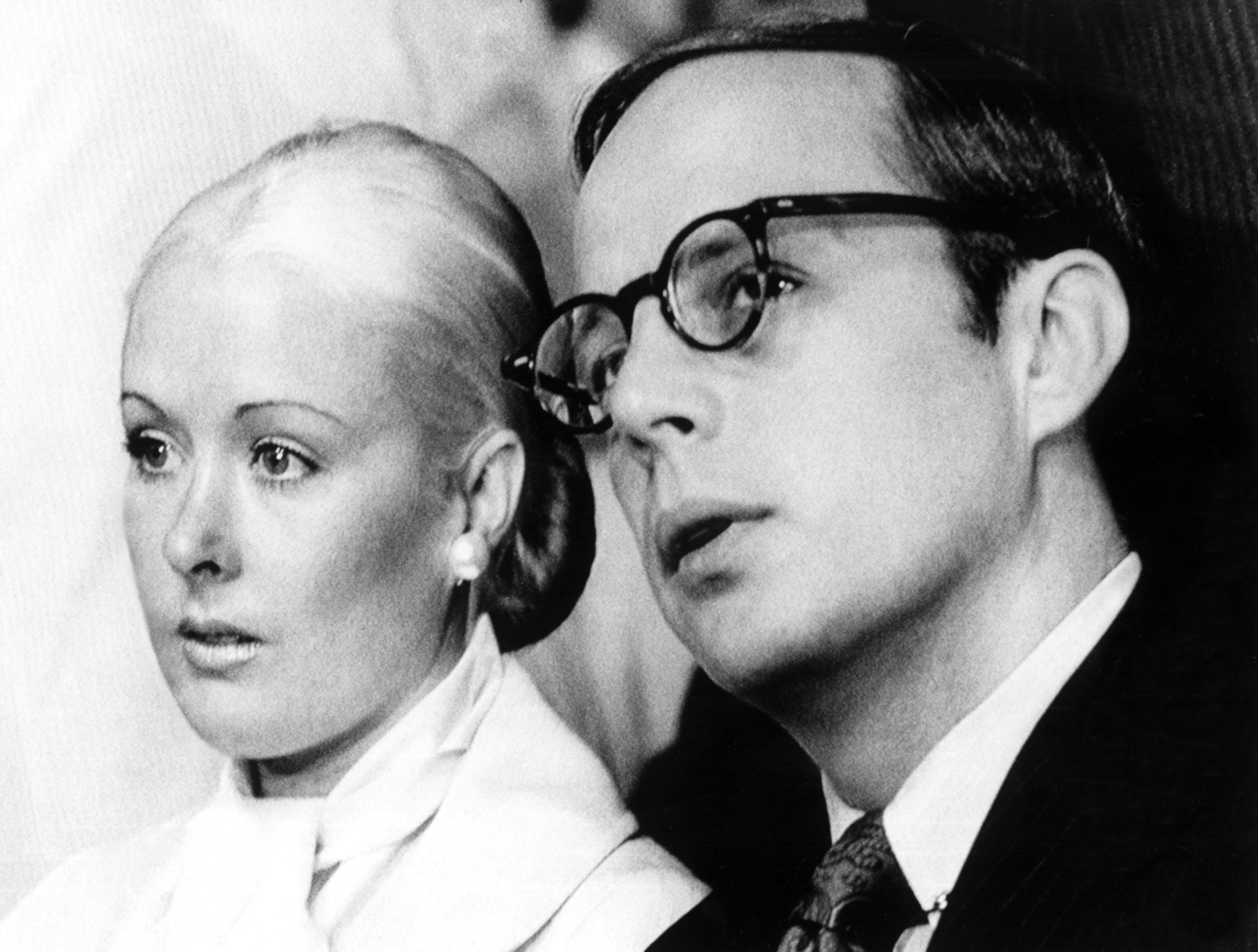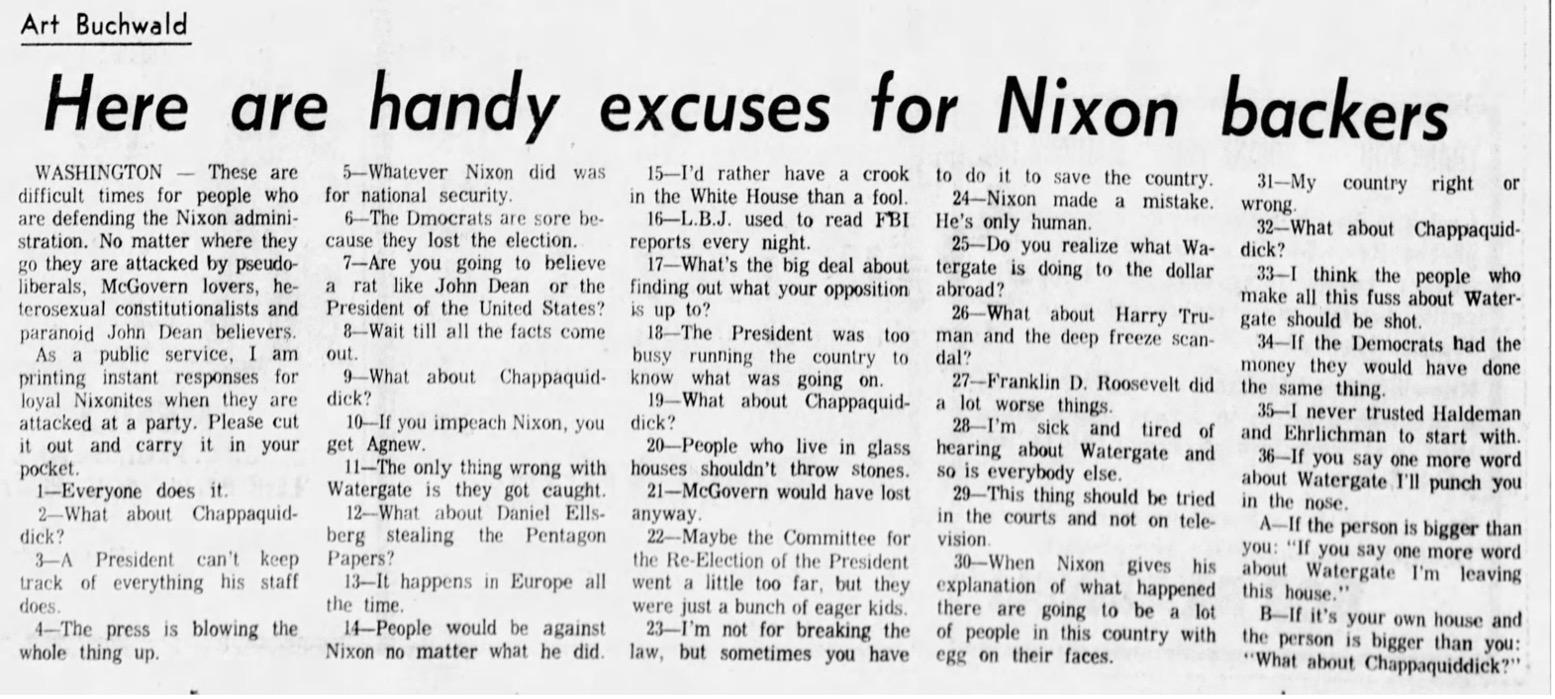
Laura's Blog

John Dean: The Testimony That Changed Everything
June 25, 2025
June 25th, 1973:
An unassuming-looking young lawyer, in a crisp button-down shirt and modest tan suit, rose before the red leather “hot seat” reserved for witnesses in the Senate’s Watergate investigation. The grandiose caucus room was jammed full—with the committee’s seven Senators behind long carved tables, Congressional aides and staffers, 30-feet worth of television cameras and spotlights, a scrum of photojournalists sitting cross-legged on the floor, print reporters at makeshift desks, and spectators so thick in number many stood jammed against the marble walls, grateful to be leaning on the cool stone in D.C.’s summer oven of humidity. But as soon as Dean raised his hand to swear to tell the truth, the room snapped from whispering, gawking cacophony to silence. Across the nation—in homes, offices, bars, and taxicabs—60 million people leaned toward TVs or radios, turning up the volume.

All to hear what this 34-year-old, seeming paragon of preppy properness—in an age of neon ties and zoot-suit-wide lapels—might say. Until recently, Dean was a virtual unknown around the capital city—until acting FBI director Patrick Gray had implied in his confirmation hearings in April that Dean may have destroyed evidence about Watergate (See my April 18th blog about Gray’s unexpected Watergate connections that sparked Nixon’s top advisers to resign).
Overnight, the nation turned its eyes to this relatively unknown staffer. Some wondered if—as The Washington Star columnist Mary McGrory (much hated by Nixon) speculated—Dean might become “the engine of impeachment," a condemnation of a president not brought at that time for more than 100 years, when Andrew Johnson was impeached in 1868.
Watergate stretched over two years. From June 1972 (with the break-in and attempted bugging of the Democratic National Headquarters) to August 1974 when President Nixon resigned (under pressure from fellow Republicans). But to best show-rather-than-tell Watergate’s soul-shaking impact on Americans, their relationships, their belief in government and sense of agency as citizens, I focused TRUTH, LIES, AND THE QUESTIONS IN BETWEEN on 1973. Because that was the year Senate Watergate hearings revealed one shocking revelation after another—about Nixon’s campaign “dirty tricks;” his thirst for retribution; his weaponizing the FBI and IRS against his “enemies list;” his attempt to shut down the DOJ’s investigation into Watergate; his using hush money, threats, smears, and the promise of pardons to buy silence and fealty.
Which all started in earnest with John Dean daring to defy a president who’d been his hero and whose legendary vindictiveness was universally feared. For five jaw-dropping days, Americans would hang on Dean’s every word. They were totally unprepared for the massive wrongdoing he revealed.
Refusing to “be scapegoated” by Nixon, Dean brought with him a 245-page statement. He read it aloud in no-drama monotone, occasionally adjusting his round tortoiseshell glasses or pushing back his blond, already carefully combed, short hair. He presented a meticulous timeline, meeting by meeting, in which he discussed plans to cover up the break-in with the president—a staggering 35 times—typically with Nixon’s top advisers, Ehrlichman and Haldeman, also in the room.
Dean testified that Nixon knew of the break-in within days of it happening and approved giving hundreds of thousands of dollars to the Watergate burglars to buy their silence and perjury.
Dean vividly recounted episodes like Howard Hunt—a former White House consultant, CIA operative, and convicted handler of the burglars—demanding $125,000 or he “would have some seamy things” to tell. Dean then urged Nixon to come clean and tell the nation the truth. The president’s reaction to Hunt’s extortion, was, however, “You could get a million dollars. And you could get it in cash. I know where it could be gotten.”
Dean dropped more bombshells during the senators’ follow-up questioning. When asked if Nixon ever used federal agencies for political revenge, Dean volunteers, “There also was maintained something called the enemies list. Rather extensive and continually updated”— opponents and critics Nixon suggested be targeted for IRS audits.
TV cameras caught the committee Senators abruptly sitting back in their chairs, aghast.
The next day, Dean submitted a White House memo listing twenty “enemies:” Democratic fundraisers, members of Congress plus journalists like the Star’s McGrory.

In terms of national dismay, “Dean turned the lights on out there in the country,” said CBS correspondent Lesley Stahl. “Everything he said was a jolt.”
(As it was for my 18-year-old protagonist of TRUTH, LIES—a moderate Republican Senate page named Patty Appleton, who idolizes her politico father. Running papers into the caucus room, she hears Dean expose that campaign donations had been diverted to hush money payments for the burglars, sending her into a tailspin of worry about whether her father—an ardent Nixon supporter and Midwest campaign chairman—could have gotten caught up in the scandal and an ethos becoming clearer by the minute: Nixonites belief of win at any cost.)
Throughout those 25 hours of testifying, Dean’s stylish, self-possessed wife, Maureen, sat quietly behind him. Her platinum-blond hair pulled back into an elegant chignon, a picture of composure. Her unwavering presence built sympathy for the recently married couple, and for Dean being a young, star-struck attorney who simply followed orders from his hero.

But Dean had no corroboration of his copious, comprehensive notes.
It became his word against the president’s. Polls showed only 50 percent of Americans believed him. The other half dismissed him as “a whiner" and “a liar” out to save his own neck. One of the nation’s most-read columnists, Joseph Alsop, smeared Dean’s testimony as “the self-serving allegations of a bottom-dwelling slug.”
A few, like humorist Art Buchwald in his “handy excuses” below, were a bit kinder—but the sentiment that Dean must be lying prevailed. Until July, when a surprise witness, Colonel Alexander Butterfield, revealed that Nixon had secretly taped all of his Oval Office conversations! Which could disprove Dean’s claims—or prove them.

While working on TRUTH, LIES, I had the true honor and pleasure of interviewing Mr. Dean. You can view our conversations here. He responded quickly and graciously to my request for an interview that I hoped would offer you not only a summation of the complexities of Watergate, but also how he found the strength to break from his party and hero to speak truth to power. The last bit feeling especially relevant today.
I so relished his no-nonsense honesty and his sense of wanting to share wisdoms he learned the hard way and from studying American politics and its players for 50 years now. He’s written a dozen books, beginning with his bestseller Blind Ambition. His latest, Authoritarian Nightmare, is a searingly insightful look at the MAGA phenomenon, the psychology of “social dominators” and extreme allegiances. I highly recommend both and hope you’ll listen to our chat.

Other Blog Posts
Click Here to See All of Laura's Blog Posts
